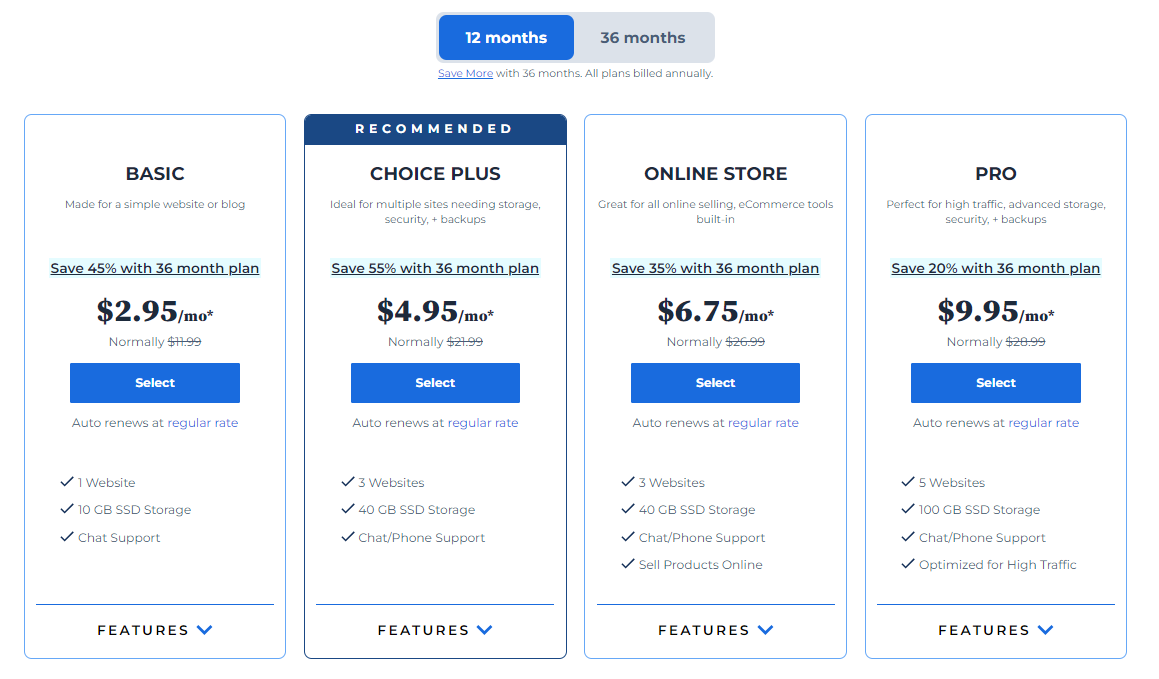When you venture into the digital realm with the intent to carve out your own corner with a blog or a website, selecting a hosting provider is a critical decision. Bluehost, one of the most recognized names in web hosting, often lures in newcomers with their irresistibly low introductory prices. But there's a catch that many don't consider when they sign up — the sharp increase in fees at the time of renewal. Let's dissect this situation and offer some tips on how to deal with it.
Navigating Bluehost Web Hosting Deals: The Truth Behind Introductory Offers

Imagine locking in a jaw-dropping deal — your website goes live at the cost of only $2.95 a month under Bluehost's Basic plan. It's less than a cup of coffee at your favorite café. You get a free domain name, SSL certificate, and enough bandwidth for a starter site. It sounds like a dream, especially for those just dipping their toes into the digital waters. However, when the honeymoon period ends, you're faced with a renewal price that quadruples your initial payment, jumping to $11.99 a month.
The Choice Plus plan paints a similar picture. It starts you off at a comfortable $4.95 a month, offering more features like domain privacy and automated backups. But again, the renewal rate hits harder, soaring up to $21.99 a month. Why does this happen, and more importantly, how can you make this work to your advantage?
The Pro plan by Bluehost further exemplifies this trend of sharp cost increases upon renewal. Initially, the plan seems like a steal at $9.95 per month, offering even more advanced features suitable for those who need a bit more in terms of performance and capacity. It’s designed for the more demanding websites that require additional resources. However, once the time comes to renew, there’s a significant price leap to $28.99 per month. This can be quite the sticker shock for someone not expecting their hosting expenses to nearly triple.

Firstly, this pricing strategy is not unique to Bluehost. It's a common practice in the web hosting industry to attract customers. The low entry price point is a powerful draw. However, it’s akin to a contractual relationship, where you must be aware of the terms and conditions. The initial rate is a promotional one, often applicable only for the first term of service (which may be one, two, or three years, depending on the length of the commitment you choose).
Strategies to Mitigate the Impact of Hosting Renewal Rates
The stark increase in renewal prices often takes users by surprise, which can understandably be a source of frustration. However, it's a part of the business model that companies like Bluehost use to recoup the costs of the services they provide.
So, what can you, as a consumer, do? Here are a few strategies:
- Long-term Commitment: Opting for the longest term at the introductory rate can lock in the savings for more time. If you're confident in the stability and continuity of your online venture, this can be the most economical choice. When the term expires, you can consider transferring to another web hosting provider like FastComet.
- Switching Providers: Some users hop between hosting services, taking advantage of introductory rates. However, this can be tedious and comes with its own set of challenges, such as website downtime and the technical aspects of migration.
- Evaluate the Value: Sometimes the higher renewal rate may be justified by the impeccable uptime, customer service, and additional features you've grown to rely on. Consider the value of these services and the potential cost and hassle of switching providers.
Understanding the full picture of web hosting costs can save you from future sticker shock. While the jump in price from Bluehost’s promotional offer to the renewal rate is substantial, it's part of a larger industry trend that can be managed with a little foresight and planning.
Before you take the plunge with any hosting service, it's essential to read the fine print, understand the long-term costs, and evaluate your options when the time comes. With these tips in mind, you can navigate the hosting world like a seasoned pro, keeping your focus on growing your online presence rather than getting bogged down by unexpected expenses.
Conclusion
With Bluehost, while the initial costs are low, it's good to be aware that the fees increase significantly upon renewal.
When it's time for the term to expire, you could consider switching to a more affordable web hosting provider like FastComet instead of renewing. Alternatively, using hosting services like AWS or Cloudways means there will be no change in fees.
